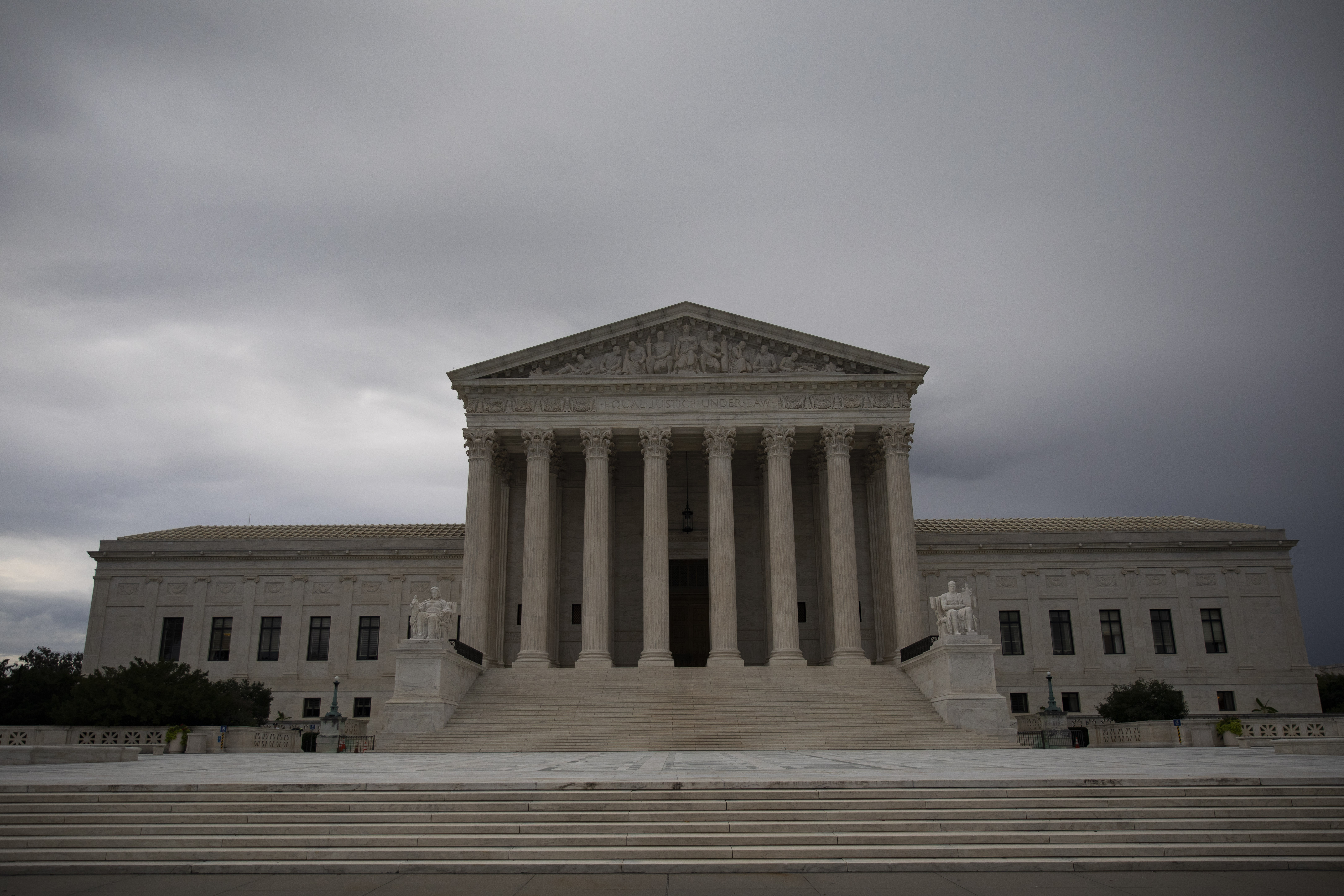US “birthright” citizenship, guarantee of the 14th Amendment
The US Supreme Court ruled in 1898 that the US-born son of Chinese immigrants was a US citizen under the 14th Amendment of the US Constitution; President Donald Trump now appears intent on challenging that precedent
(Drew Angerer)
Washington (AFP) – The 14th Amendment to the US Constitution grants US citizenship to persons born on US soil.
It was passed by Congress in 1866 after the bloody Civil War between the North and pro-slavery South and ratified by three-fourths of the US states two years later.
The 14th Amendment overturned the infamous 1857 US Supreme Court ruling in the “Dred Scott v. Sandford” case which held that African-Americans could not be US citizens.
“All persons born or naturalized in the United States, and subject to the jurisdiction thereof, are citizens of the United States and of the State wherein they reside,” the amendment reads.
President Donald Trump, in an interview released Tuesday, said he is considering using an executive order to abolish “birthright” citizenship for children of non-citizens and illegal immigrants.
“We’re the only country in the world where a person comes in and has a baby, and the baby is essentially a citizen of the United States,” Trump said. “It’s ridiculous. And it has to end.”
Constitutional scholars questioned whether the president can make such a move through an executive order but Trump said he believes he can.
“It was always told to me that you needed a constitutional amendment,” he told Axios. “Guess what? You don’t.”
“You can definitely do it with an Act of Congress,” the president said. “But now they’re saying I can do it just with an executive order.”
The American Civil Liberties Union (ACLU) denounced Trump’s statements as unconstitutional and a political maneuver ahead of November elections.
“This is a blatantly unconstitutional attempt to fan the flames of anti-immigrant hatred in the days ahead of the midterms,” the ACLU said in a tweet.
“The 14th Amendment’s citizenship guarantee is clear. You can’t erase the Constitution with an executive order @realDonaldTrump.”
– Wong Kim Ark case –
The issue of birthright citizenship has come before the Supreme Court previously, most notably in an 1898 case “United States v. Wong Kim Ark.”
Wong Kim Ark was born in California in 1873 to parents who had come to the United States from China.
After a visit to China, Wong Kim Ark was denied reentry into the United States in 1895 under the Chinese Exclusion Acts.
The Supreme Court ruled, however, that the acts did not apply to Wong Kim Ark and that he was a US citizen by virtue of being born in the United States.
Historian Martha Jones, author of “Birthright Citizens: A History of Race and Rights in Antebellum America,” said the White House may craft an argument to try to get around the ruling and the 14th Amendment.
The 14th Amendment does not apply to persons who are not subject to US jurisdiction — foreign diplomats, for example, and Native Americans.
“(The Supreme Court) could distinguish from Wong Kim Ark on the facts,” Jones said in a thread on Twitter.
“Wong’s parents were authorized or we might say legal immigrants. Their presence in the US was authorized,” she said. “Wong Kim Ark did not directly address the status of children born to unauthorized immigrants.
“The President proposes to interpret that part of the 14th Amendment which excludes persons not subject to US jurisdiction from Birthright Citizenship,” Jones said.
“His view as I take it is that children born to unauthorized immigrants are excluded from Birthright under this exception,” she said.
“Could (the Supreme Court) revisit its own precedent in Wong Kim Ark and rule that children of noncitizens are not Birthright citizens,” Jones asked. “It would be a departure from precedent, but it is possible.”
Vice President Mike Pence appeared to make just this case during a forum with Politico on Tuesday.
“We all cherish the language of the 14th Amendment, but the Supreme Court of the United States has never ruled on whether or not the language of the 14th Amendment ‘subject to the jurisdiction thereof’ applies specifically to people who are in the country illegally,” Pence said.
Republican Senator Lindsey Graham of South Carolina, a Trump ally, said he planned to introduce legislation in Congress “along the same lines as the proposed executive order.”
“Finally, a president willing to take on this absurd policy of birthright citizenship,” Graham tweeted.
“This policy is a magnet for illegal immigration, out of the mainstream of the developed world, and needs to come to an end,” he said.
About 30 countries around the world apply some form of birthright citizenship, according to various reports.
According to a Pew Research Center study, about 275,000 babies were born to the parents of unauthorized immigrants in the United States in 2014 — around seven percent of the four million births in the country that year.
Disclaimer: This story has not been edited by Siliconeer and is published from a syndicated feed. Siliconeer does not assume any liability for the above story. Validity of the above story is for 7 Days from original date of publishing. Content copyright AFP.


